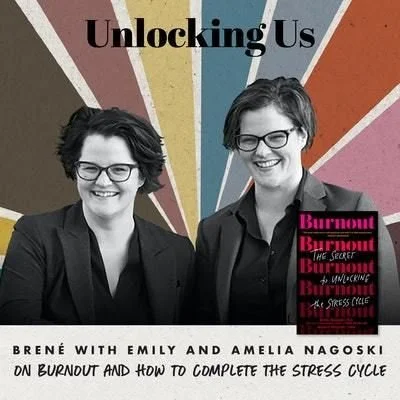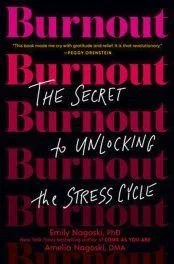Burnout burnout burnout burnout...
October 18th, 2020
I have to admit, the last few weeks have been some of the most stressful and exhausting of my life.
I've experienced worse traumas, such as being in NYC and losing a friend on 9/11, going through a difficult divorce, and losing my first pregnancy to a miscarriage. Certainly you could even say that quarantining heavily while living with vulnerable family members at the center of a global pandemic was, for all means and purposes, a lot worse, but there has been something about the emotional exhaustion of the past few weeks that has been something else entirely.
Deeper.
And it literally feels like my life expectancy is dropping by the day, because I can feel it manifesting in my body.
It's a hard thing to admit when on the surface, things are actually going relatively well in the whole scheme of things - my family is healthy, we have relative job, financial, housing, and food security, my family is not at high risk of being shot by police simply for living our lives, remote learning, while challenging, is about as good as I could possibly imagine in being, we were lucky enough to be able to get away out of the city for a few weeks at the end of the summer, the weather has been mostly nice and the kids have been able to meet friends (outdoors and masked), the Co-Creating Inclusion team is growing and we are busy with projects that offer opportunities for deep, meaningful and potentially impactful engagement.
Why is this so hard?
Why I am so emotionally exhausted?
Other people have it so much worse.
What have I to complain about?
Karyn Kelbaugh, our resident data analyst, researcher and former social worker told me I should listen to Brene Brown's podcast episode on a book called Burnout, which sounds tailor made for current times, but was actually published in March 2019 (a good reminder that burnout is not just a pandemic phenomenon, but has reached new collective levels).
I love Brene Brown, and her book, Rising Strong, was the book that really helped me after the 2016 election, AND I tend not to center on white voices in my reading and listening these days, it's just not what I tend to need most.
I will say though that this podcast episode was indeed incredibly helpful. As Karyn told me excitedly, "it's based on peer-reviewed research!"
The biggest takeaway for me from the podcast episode, which is an interview with the authors Emily and Amelia Nagoski (they are identical twins!) is that removing stressors doesn't necessarily remove stress - in order to address stress, we need to complete the stress cycle, which has a beginning, a middle and an end.
Burnout happens when we get stuck in the middle of the stress cycle.
Luckily what this also means is that we can address stress and burnout even while stressors remain (hello systemic racism, white supremacy, patriarchy, late stage capitalism, the rise of fascism and an ongoing and poorly addressed global pandemic to name a few).
So how do you complete the stress cycle? It sounds very abstract but the suggestions are actually very tangible and make sense, but what I like is that this goes beyond "self-care" and is physiologically based.
And yes, on the podcast the authors talk about how burnout particularly impacts women, especially right now, but they also touch on how white women, in their trauma and exhaustion, often end up "leaning down" to oppress Black, brown and other women of color as well as members of other marginalized groups.
Which makes recovery from burnout all the more important - we are all more likely to cause harm when we are burned out and exhausted ourselves, but those with more systemic power and privilege have more opportunity to cause and exacerbate system oppression (that's my added note, not theirs).
So, from my memory, here are the seven ways you can complete the stress cycle instead of getting stuck in the middle, resulting in burnout:
Movement and physical activity (I admit I inwardly groaned when I heard this one... but wait, there's more!)
Breathing - deeper, slower breaths (this one is easy and sounds silly but it really does work)
Positive social interactions
Hugs
Crying (the cathartic kind where you move through feelings rather than feed into them)
Laughing (not the polite or defensive kind, but the deep uncontrollable belly laugh kind)
Creative expression
The important thing here is that stress is a cycle - it's not something you can eliminate entirely or even at all, we are always going to be oscillating through these cycles to a greater or lesser degree, but if we can complete the cycles, we can prevent the accumulation of stress that is so damaging to our bodies and can end up manifesting as physical symptoms.Listen to the podcast episode for more information as well as a conversation that just might get you both laughing and crying (that's two out of the seven strategies!) or check out the book, Burnout, by Emily and Amelia Nagoski (that's my Bookshop affiliate link).


